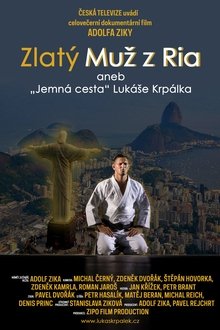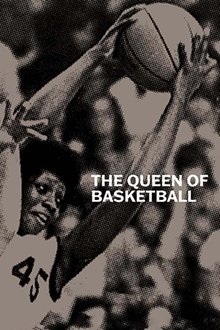A feature length documentary about the struggle of a group of swimmers from developing nations trying to qualify for the Olympic Games for the first time. A story about pursuing your dreams and overcoming adversity.
Related Movies
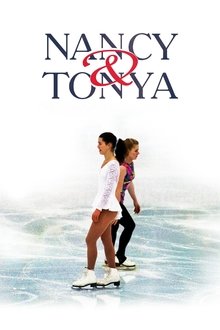
Nancy & Tonya (2014)
Mary Carillo looks back at the events leading up to, during and following the ladies’ figure skating competition at the 1994 Winter Olympic Games in the one-hour special, “Nancy & Tonya.” The documentary, which originally aired during NBC’s Sochi Olympics coverage, features an exclusive sit-down with Nancy Kerrigan and a one-on-one interview with Tonya Harding.
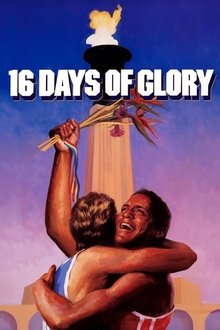
16 Days of Glory (1985)
The definitive photographic record of the 1984 Los Angeles Olympics, told "from the inside" through the lives of the participants, the words of David Perry, and the singing voice of Placido Domingo. From the opening to closing ceremonies, this unique style of storytelling shows a side of the Olympic Games not seen by television audiences.
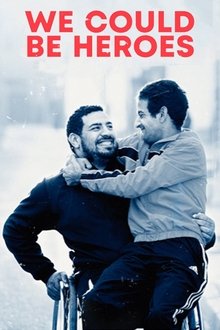
We Could Be Heroes (2018)
Moroccan paralympic gold medalist Azzedine Nouiri is no longer looking for the longest throw, but to overthrow the system that keeps athletes with different abilities marginalized as destitute second-class citizens.
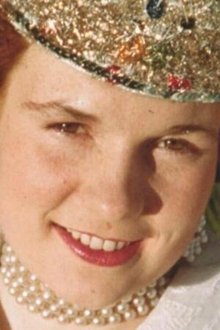
Dulais Valley (1965)
Master baker, owner of Duffryn Bakery, Onllwyn, turns his hand to film-making and captures community events in glorious colour.
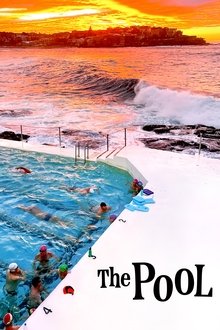
The Pool (2024)
Bondi Icebergs is the most photographed pool in the world. This is where generations of children have learnt to swim, where the diehard have braved the frigid waters of one hundred winters, where the young and beautiful have come to bond and bake in the hot sun. THE POOL is a stunning cinematic experience with a soundtrack that harks back to the 1960s and a cast of characters who each have a story to tell. It speaks to the enduring power of community and our collective longing to find it. No matter your background or where you’re at – everyone is equal in their swimsuits.

Helen Maroulis: Girls Can't Wrestle (2017)
People have doubted Helen Maroulis her entire life. Many believed there was no room for her in the sport. That didn't stop her though. Since she was 13 she believed that she would be an Olympic gold medalist and nothing was going to keep her from achieving her dream. In Episode 1, Helen opens up about the obstacles she had to overcome to become the wrestler that she is today.
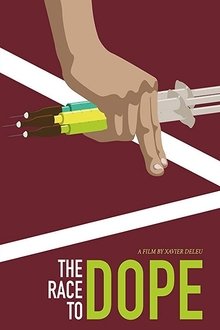
The Race to Dope (2016)
Russia is about to be banned from participating in the next Olympics. Six other countries are on the watch list. Not a week goes by without a new doping scandal in the world of sports. But how does the doping system really work? Who designs the programmes and who supplies the substances? Filmed in 11 countries, this multi-sports investigation explores the implications of widespread doping.

Olympia Part One: Festival of the Nations (1938)
Starting with a long and lyrical overture, evoking the origins of the Olympic Games in ancient Greece, Riefenstahl covers twenty-one athletic events in the first half of this two-part love letter to the human body and spirit, culminating with the marathon, where Jesse Owens became the first track and field athlete to win four gold medals in a single Olympics.

Olympia Part Two: Festival of Beauty (1938)
Part two of Leni Riefenstahl's monumental examination of the 1938 Olympic Games, the cameras leave the main stadium and venture into the many halls and fields deployed for such sports as fencing, polo, cycling, and the modern pentathlon, which was won by American Glenn Morris.
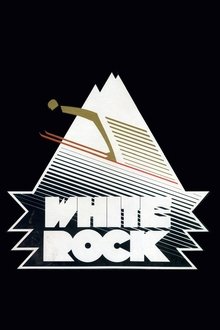
White Rock (1977)
British documentary filmmaker and producer Tony Maylam reinvigorated the sports documentary genre with WHITE ROCK, an idiosyncratic and utterly engaging account of the XII Olympic Winter Games Innsbruck 1976. He did so by placing music (by organ and synth wunderkind Rick Wakeman) front and center, and by using Hollywood star James Coburn as a "guide for the uninitiated."
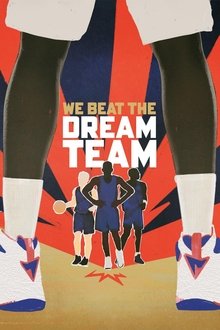
We Beat the Dream Team (2025)
Discover the little-known story of a group of college basketball players who were tasked with preparing Larry Bird, Magic Johnson, and Michael Jordan and the rest of the legendary "Dream Team" for their Olympic debut in 1992.
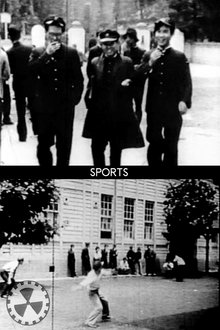
Sports (1932)
The film is about a protest provoked when the university decided to restrict access to sports facilities to athletes, cutting out all other students. This is, strictly speaking, not a Prokino film. It was produced by the Waseda University Film Circle, which was organized by Kawazoe Shiro. Feature film directors Yamamoto Satsuo and Taniguchi Senkichi were apparently students at Waseda at the time and participated in the production.
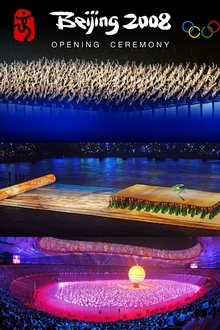
Beijing 2008 Olympic Opening Ceremony (2008)
The 2008 Summer Olympics opening ceremony was held at the Beijing National Stadium, also known as the Bird's Nest. It began at 8:00 p.m. China Standard Time (UTC+8) on August 8, 2008, as 8 is considered to be a lucky number in Chinese culture. Featuring more than 15,000 performers, the ceremony lasted over four hours and cost over $100 million USD to produce.

Operation Gamescan 76 (1977)
This short documentary profiles the Canadian military’s organization, logistical, and security operations at the XXI Olympiad held in 1976 in Montréal. The scale of the operation was large: 16,000 troops were mobilized to provide protection for 7,500 athletes, countless VIPs, and the general public on 138 sites located in Montreal, Bromont, and Kingston. This film offers a behind-the-scenes look at the planning and synchronization necessary to mount a successful international event of massive proportions.

Playboy's Girls Next Door - Naughty and Nice (1997)
Nothing beats the enticing appeal of those alluring girls next door. Now they're all grown up and ready to take you on a series of rousing rendezvous that are naughty... and oh so nice!
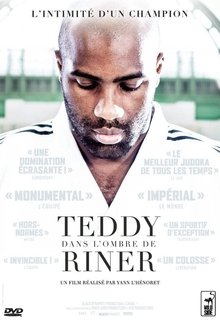
Dans l'ombre de Teddy Riner (2016)
Documentary following Teddy Riner's incredible career from 2004 to 2016 before Rio Olympic Games. We learn about his roots in Guadeloupe, his training, his family and friends (among them Tony Parker and Omar Sy). And everything that has braught him to the top of Judo.
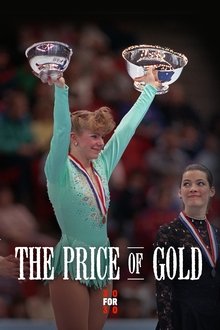
The Price of Gold (2014)
The world couldn't keep its eyes off two athletes at the 1994 Winter Games in Lillehammer - Nancy Kerrigan, the elegant brunette from the Northeast, and Tonya Harding, the feisty blonde engulfed in scandal. Just weeks before the Olympics on Jan. 6, 1994 at the U.S. Figure Skating Championships, Kerrigan was stunningly clubbed on the right knee by an unknown assailant and left wailing, "Why, why, why?" As the bizarre "why" mystery unraveled, it was revealed that Harding's ex-husband, Jeff Gillooly, had plotted the attack with his misfit friends to literally eliminate Kerrigan from the competition. Now two decades later, THE PRICE OF GOLD takes a fresh look through Harding's turbulent career and life at the spectacle that elevated the popularity of professional figure skating and has Harding still facing questions over what she knew and when she knew it.
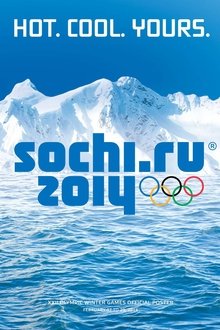
Sochi: 2014 Olympic Opening Ceremony: Dreams of Russia (2014)
The opening ceremony of the 2014 Winter Olympics took place at the Fisht Olympic Stadium in Sochi, Russia, on 7 February 2014. It began at 20:14 MSK (UTC+4) and finished at 23:02 MSK (UTC+4) This was the first Winter Olympics and first Olympic Games opening ceremony under the IOC presidency of Thomas Bach. The Games were officially opened by President Vladimir Putin. An audience of 40,000 were in attendance at the stadium with an estimated 2,000 performers. The ceremony touched upon various aspects of Russian history, and included tributes to famous Russians, such as Peter Tchaikovsky (1840–1893), Ukrainian-born Russian humourist, dramatist, and novelist Nikolai Gogol (1809–1852), filmmaker Sergei Eisenstein (1898–1948), ballet dancer Vaslav Nijinsky (1889–1950), and patron of arts, and founder of Ballet Russes, Sergei Diaghilev (1872–1929).
